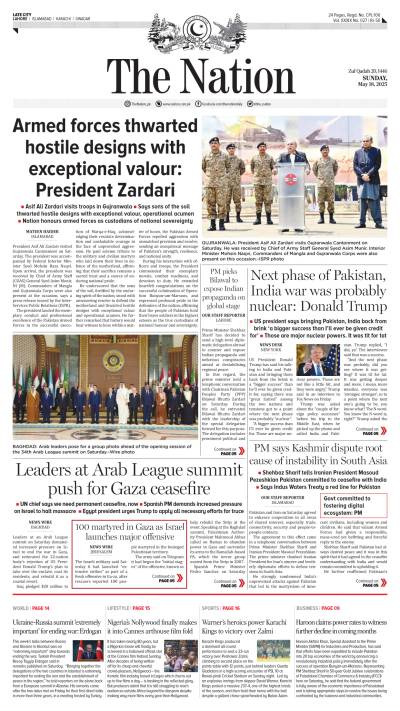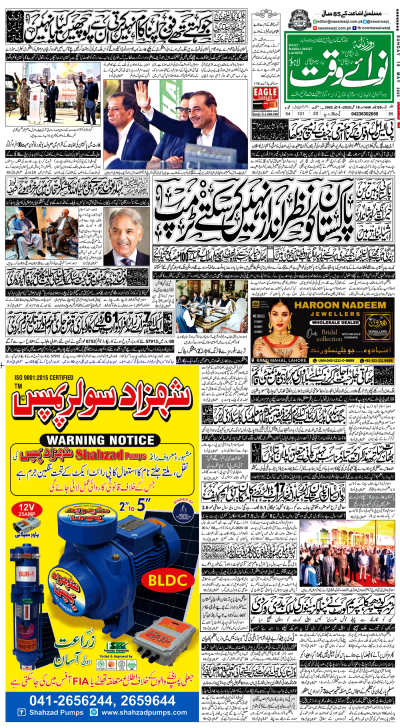After the Indian Air Force internationally embarrassing performance during “Operation Sindoor,” Prime Minister Narendra Modi’s speech to the nation exemplifies his government preference for aggressive rhetoric aimed at inflaming nationalist sentiments. While such speeches may resonate with domestic audiences, they reveal a troubling disregard for regional stability and international diplomacy. India’s claims of surgical strikes and alleged victories over Pakistan, whether in Kargil, Balakot,1965 Pak-Indo War or now “Operation Sindoor” follow a familiar script akin to its Bollywood movies, where India portrays itself as the victim and Pakistan as the villain.
However, history shows that whenever Pakistan gains the upper hand, India quickly calls for a ceasefire and later frames it as their victory.
This pattern is well-documented with history bearing witness to India’s attempts to rewrite the narrative in its favour. Not only does history refute these claims, but even Indian officials have acknowledged Pakistan’s resilience. Lt Gen P. R. Shankar recently admitted in a webinar that Pakistani fighters are not easily defeated. These acknowledgments reveal the emptiness of Modi’s words.
Furthermore, Modi’s arrogance and refusal to engage in meaningful dialogue creates a dangerous dynamic, escalating tensions between two nuclear-armed neighbours. His recent statement that “Operation Sindoor has not ended, but has been postponed” underscores India’s unwillingness to pursue peace, instead fueling unrest and deepening divisions in South Asia. His claim that “we have taken revenge and received the price of erasing Sindoor” by destroying terrorist camps is equally misleading. In reality, India did not target enemy camps but attacked the homes of innocent Kashmiris, killing children and causing immense suffering to their mothers. Such actions amount to terrorism and further reveal the hypocrisy of Modi’s rhetoric.
Modi’s repeated claims about Pakistan fostering terrorism ignore the immense sacrifices Pakistan has made, losing thousands of lives while dismantling terror networks. Ironically, while Modi accuses Pakistan of terrorism, evidence points to India’s own involvement in destabilizing Pakistan. The case of Kulbhushan Jadhav, a serving Indian Naval Officer captured in Pakistan is a glaring example. His confession and the documentation of India’s support for the Balochistan Liberation Army (BLA) highlight India’s duplicity.
Despite such provocations, Pakistan has consistently advocated for peace and has consistently confronted these accusations on international platforms, presenting clear evidence. At the UN Assembly, Pakistan’s former foreign minister stated, “India blames Pakistan for terrorism, but it is India itself that is involved in fostering unrest within Pakistan. They accuse us of harbouring Osama bin Laden, a man who is no longer alive, while the butcher of Gujarat lives and he is India’s prime minister. If you ask the people of Gujarat who spreads terror, they would point to their own prime minister.” This remark starkly highlights India’s double standards and its unwillingness to confront its own actions. Instead of addressing legitimate concerns about the terrorism inflicted upon Kashmiris under Indian occupation, Modi has conveniently weaponized the term “terrorism” to deflect criticism and justify his government’s heavy-handed policies.
Modi’s speech repeated a familiar stance that India will only engage with Pakistan on matters of “terrorism and POK.” These ultimatums reveal a shallow understanding of diplomacy, India’s reluctance to address broader issues like Kashmir or participate in confidence building measures with Pakistan signals a disinterest in achieving true peace. Additionally, If India truly believes “this is not an era of war,” as Modi claims, then why his constant focus is on military posturing? The reality is that Modi’s rhetoric is not about securing peace but about securing votes, often at the cost of regional harmony.
South Asia, one of the world’s most populous and resource-constrained regions, cannot afford the luxury of militaristic adventurism. Climate change, poverty, unemployment, and inequality are far greater threats to the region’s future than perceived rivalries. Yet, India’s focus remains on projecting power through hostile rhetoric and actions that undermine collective progress.
Pakistan, on the other hand, has consistently advocated for peace and regional cooperation. Islamabad’s calls for dialogue, including on the issue of Kashmir, remain open despite India’s repeated rebuffs. For Pakistan, the path forward lies in fostering mutual understanding and working towards shared prosperity. India must recognize that its aggressive posturing does not strengthen its position but isolates it on the global stage. Genuine power comes not from military might but from the ability to lead by example. The future of South Asia depends on visionary leadership that prioritizes dialogue, cooperation, and sustainable development over conflict. For the sake of over a billion lives across this region, it is time to silence the drums of war and begin the difficult but necessary task of building peace.
Modi’s speech, filled with bravado and bluster, serves as a stark reminder of how far we still have to go to achieve this vision. However, as Defence Minister of Pakistan said, “Pakistan remains steadfast in its commitment to peace, but it will not hesitate to defend its sovereignty if provoked.”
Sadia Zahra
The writer is a Research Fellow at Balochistan Think Tank Network (BTTN) from Quetta. She is a graduate of Public Administration, BUITEMS.





